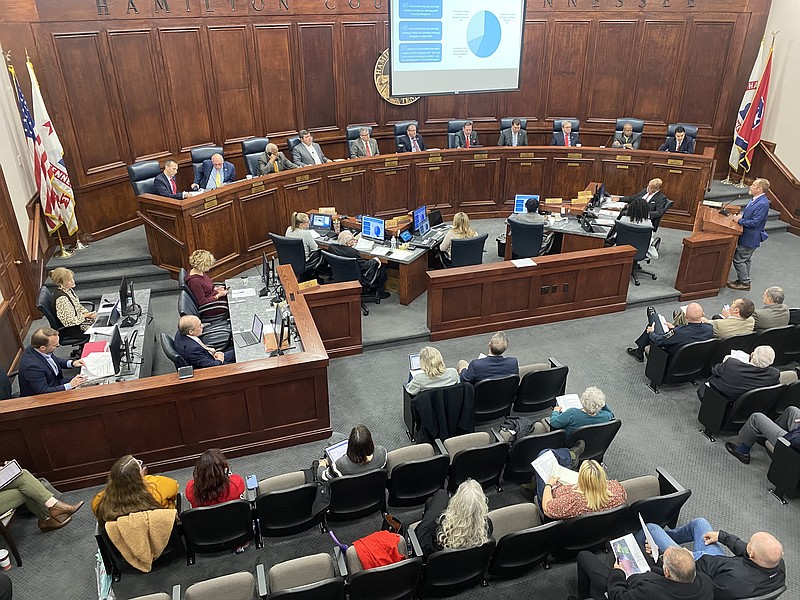In the late winter of 1974, the proposed "Sunshine Law" was referred to as "dastardly," "vague," "unconstitutional" and several other words you couldn't print in a family newspaper.
Today, if you could get elected officials away from us prying media types, many probably would have the same comments and complaints.
Many public officials would be just as happy if the meat of their business could be done behind closed doors, over coffee at Starbucks or through a conference call.
But 50 years ago this week, the bill sponsored by state Rep. John Bragg, D-Murfreesboro, wound its way through the Democrat-dominated legislature amid the milieu of a Watergate coverup scandal playing out in newspapers and on television.
The simple idea was that the law would open all governmental meetings to the public. Its purpose, now enshrined in Tennessee law, states a) "The general assembly hereby declares it to be the policy of this state that the formation of public policy and decisions is public business and shall not be conducted in secret."
In 1976, the Tennessee Supreme Court clarified that "the Legislature intended to include any board, commission, committee, agency, authority, or any other body, by whatever name, whose origin and authority may be traced to state, city, or county legislative action and whose members have authority to make decisions or recommendations on policy and administration affecting the conduct of the business of the people in the governmental sector."
The proposal, overwhelmingly passed in both houses of the legislature and signed by Republican Gov. Winfield Dunn, has made strange bedfellows of politicians over the years.
State Sen. Dan Oehmig, R-Lookout Mountain, led the opposition in the General Assembly's upper chamber, saying he believed in open meetings but felt the need for executive (closed) sessions for the likes of buying or selling property, plans for civil disorders or the settlement of lawsuits.
"If publicity is given as to how the law enforcement agencies are going to control civil disorders, the rioting will never stop," he said.
Sen. Ray Albright, R-Chattanooga, had concerns about the confidentiality of individuals, citing a recent school board meeting where charges which subsequently proved false were aired.
"An individual's reputation would be ruined by exposure in some cases," he said. "Just the publicity would have ruined these people [in the school board example]."
Meanwhile, left of center Chattanooga City Commissioner Steve Conrad praised the measure.
"May 1 [when the bill would become active] will be the brightest day since women got the right to vote," he said. "I've been advocating open meetings for years because the people are bound to benefit."
Since then, of course, numerous amendments and exceptions have proven that "all" meetings would be open didn't necessarily mean "all."
And that hasn't stopped elected officials from wishing the law didn't exist. Two current members of the Hamilton County Commission, both Democrats, have been particularly vocal in the past about it.
"The sunshine law stinks," Commissioner Greg Beck said in 2015, amid a measure to replace chairs in some county courtrooms. "We ought to be able to talk [privately]. I've suggested time and time again that we talk, and that we don't get to the point where we look like we're so divided up here."
Commissioner Warren Mackey was worried about the openness when attempting to attract competitive grants or new business.
"To that extent," he said in 2015, "I too am 110 percent in support of getting rid of the Sunshine Law, or at least allowing more conversations. I'm not saying that we are cutting deals. What I'm saying is simply if we were able to have a conversation, to have all the facts and data and discussion."
Former Hamilton County Commissioner Fred Skillern voiced a similar concern about buying land in 2008, saying the law could make the county's negotiating position weaker.
"When the 'Sunshine Law' starts costing taxpayers money," he said, "I start to question whether it's worth it."
But 50 years after its passage, the "Sunshine Law" unquestionably has done more good than harm. People today can hear for themselves issues debated among elected leaders. They know who's "fer" and who's "agin." Back-room deals become amendments that may be voted up or down. It leaves no one guessing and forces a sense of honesty and transparency.
No, we're not so naive to believe things don't happen behind the scene that shouldn't, but the law overall has brought government closer to the people, as it should be.
